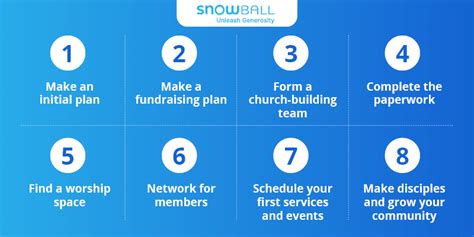Your Step-by-Step Guide to Church Employment
Finding fulfilling employment can be challenging, but seeking a job within a church setting adds a unique layer of considerations. This guide provides a comprehensive, step-by-step approach to navigating the process of securing church employment, from identifying your skills to successfully navigating interviews.
Identifying Your Skills and Interests within Church Ministry
Before embarking on your job search, take time for self-reflection. What are your strengths? What aspects of church ministry resonate most with you? Are you passionate about youth ministry, music, administration, pastoral care, or something else entirely? Identifying your skills and interests will help you target suitable roles and tailor your application materials effectively. Consider making a list of your skills, both hard (technical skills like accounting or graphic design) and soft (interpersonal skills like communication and empathy). Think about past experiences – volunteer work, previous jobs, even hobbies – that demonstrate these skills.
Researching Church Employment Opportunities
Numerous avenues exist for discovering church employment opportunities. Start by exploring online job boards specializing in faith-based employment. Many churches also post openings on their websites, so directly checking the websites of churches in your area or those whose ministries align with your values is a crucial step. Networking within your faith community is also invaluable. Attend church services, connect with church leaders, and let your network know you're actively seeking employment. Don't underestimate the power of word-of-mouth referrals.
What are the different types of church jobs available?
Church employment opportunities span a wide range of roles. These include, but are not limited to:
- Pastoral Staff: Senior Pastor, Associate Pastor, Youth Pastor, Children's Pastor. These roles often require theological education and ordination.
- Administrative Staff: Church Administrator, Office Manager, Bookkeeper, Secretary. These roles require strong organizational and administrative skills.
- Music Ministry: Music Director, Worship Leader, Choir Director, Organist. Musical talent and experience are essential for these roles.
- Youth & Children's Ministry: Youth Pastor, Children's Pastor, Youth Group Leader, Sunday School Teacher. Passion for working with children and young adults is crucial.
- Outreach & Missions: Missionary, Outreach Coordinator, Volunteer Coordinator. Strong communication and organizational skills are necessary.
- Facilities Management: Custodian, Maintenance Worker, Facilities Manager. Practical skills and experience in maintenance are required.
Crafting a Compelling Resume and Cover Letter
Your resume and cover letter are your first impression on potential employers. Tailor these documents to each specific job application, highlighting the skills and experiences most relevant to the role. Your resume should be clear, concise, and easy to read. Use action verbs to describe your accomplishments and quantify your achievements whenever possible. Your cover letter should express your genuine interest in the specific church and position, showcasing your understanding of their mission and values.
How do I tailor my resume and cover letter for a church?
When applying for church employment, subtly incorporate your faith and values into your application materials. This demonstrates your alignment with the church's mission. However, avoid overly religious language, and focus on your skills and experience. Highlight any volunteer work or church-related activities you've participated in. Use keywords relevant to the job description.
Preparing for and Successfully Navigating the Interview Process
The interview stage requires careful preparation. Research the church thoroughly, understanding its history, mission, and values. Prepare answers to common interview questions, and practice articulating your skills and experiences. Bring copies of your resume and a list of references. Remember to dress professionally and arrive on time. During the interview, be enthusiastic, genuine, and demonstrate your passion for ministry. Ask thoughtful questions to show your interest in the position and the church.
What are common interview questions for church employment?
Expect questions assessing your faith, experience, and suitability for the role. Examples include:
- Tell me about your faith journey.
- Why are you interested in working for this church?
- Describe your experience working with [relevant group, e.g., children, youth].
- How would you handle a conflict within the team/congregation?
- What are your strengths and weaknesses?
Following Up After the Interview
After the interview, send a thank-you note expressing your gratitude and reiterating your interest. This demonstrates professionalism and keeps you top-of-mind. If you haven't heard back within a reasonable timeframe, it's appropriate to follow up politely.
Securing church employment requires dedication, preparation, and a genuine passion for ministry. By following these steps, you'll significantly increase your chances of finding a fulfilling and rewarding career within your faith community. Remember to pray for guidance throughout the entire process.

